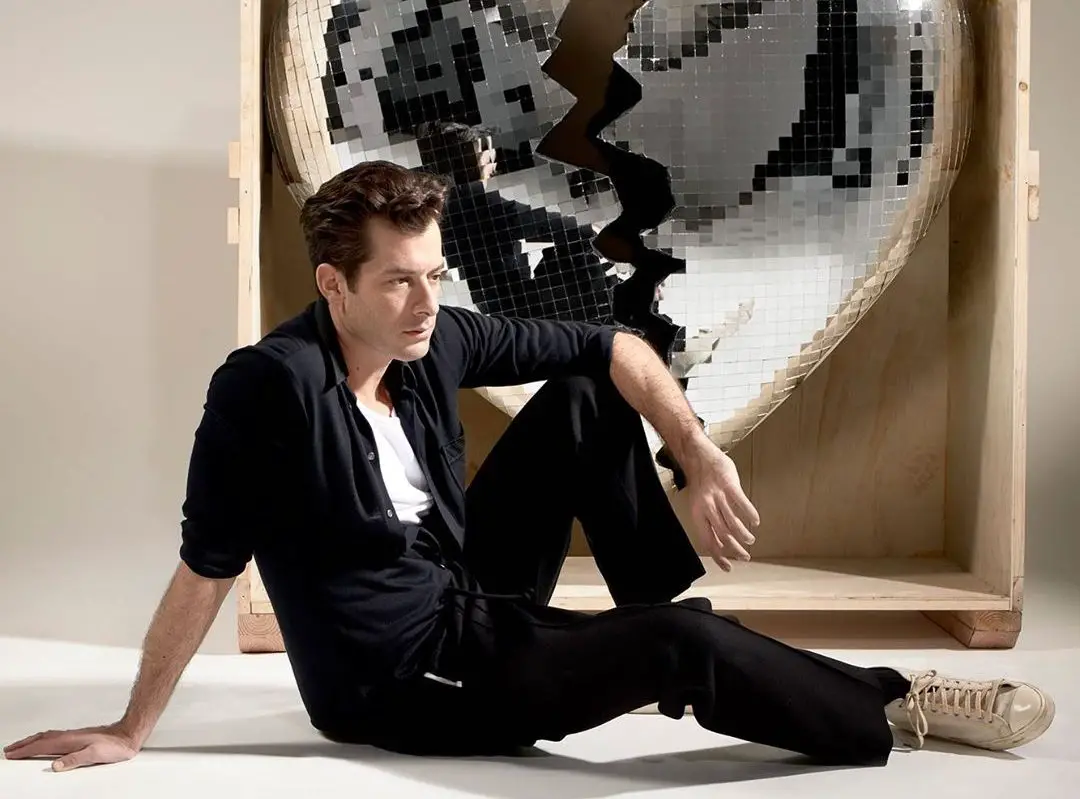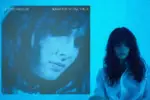Mark Ronson, more well known as the producer of mega-smash “Uptown Funk,” released the LP “Late Night Feelings” after years outside of the limelight. With the emblem of a broken disco ball heart, Ronson claimed in a Las Vegas Weekly interview that he wanted to make sad bangers. The funky producer had a strong back catalogue, but did the album fulfill this description?
Active since 1993, Ronson is a prolific music producer. His name graces the credits of hits like Amy Winehouse’s “Rehab” and “Back to Black,” Bruno Mars’ “Locked Out of Heaven,” Lady Gaga and Bradley Cooper’s “Shallow” and his own Mars collaboration, “Uptown Funk.” Despite his decades-spanning career, he has yet to become a recognizable pop culture figure, perhaps because his work is so homage-heavy and behind the scenes. “Uptown Funk” lists Ronson as the lead artist, but most know it first and foremost as a Bruno Mars song. The most recognition he can generally get is “that one guy who makes throwback Motown beats.”
https://www.instagram.com/p/Bt1n0yJgoxx/?utm_source=ig_web_copy_link
This latest release proved a natural and interesting growth from previous work. While Ronson claimed “Late Night Feelings” is “the best thing [he’s] ever made … definitely the record [he’s] worked hardest on,” a Guardian interview revealed a dark origin. He “was floundering … drinking too much and just giving orders over the backs of people’s shoulders and s***” after a 2017 divorce and new feelings of disconnection from the music he made. Accordingly, the album took a moodier turn.
Since “Late Night Feelings” bears Ronson’s name, his contributions come first. The production style is still recognizably his own. The album is a slick throwback to Motown and other early ‘70s pop soul, but the sunshiny bravado of “Uptown Special” shies away behind a horde of clouds. The tunes resemble the melancholy side of classic R&B: think less “I Got You (I Feel Good)” and more “It’s a Man’s World,” both by James Brown. Ronson is graceful and morose in his compositions, with somber keys gliding and moody guest singers over rickety drums.
Simply put, “Late Night Feelings” has bops. That sense of sadness adds a tension to the replete danceable grooves. The title track’s muted disco boogie works wonders with the vocal-copying bells. “Knock Knock Knock” is 90 seconds of sultry bass over loose drums. “Truth” precedes the end of the world. Rubbery sadness pervades “Pieces of Us.” The dreamy “True Blue” exhales woe. Ronson is on point with every beat, and he translates bittersweet flavors into his saccharine modus operandi with ease.
https://www.instagram.com/p/By0jKYQAnY5/?utm_source=ig_web_copy_link
Ronson’s unflappability in the face of minor keys means he still produces great beats, but a perfectly even hand can also undermine the project. A few of the instrumentals fit everything a little too perfectly and much too plainly into place. The result can feel plasticine. R&B requires a level of grit and earthiness, perhaps even human error; Ronson at times neglects that necessity. The beats for “Find U Again” and “Nothing Breaks Like a Heart” especially lack the creative, human wonkiness that bring out the best in the rest of the album and instead flatten into synthetic blandness. “Late Night Feelings” as a whole feels like the afterparty to a prom gone sour. At those points, the album feels like the average pop music playing in the background.
Perhaps Ronson’s collaborators make those specific tracks feel out of place. Throughout the album, the producer employs guest singers for breakup song after breakup song. On “Find U Again,” he employs Camila Cabello of Fifth Harmony. Miley Cyrus appears on “Nothing Breaks Like a Heart.” Both have thin, pop vocal styles that don’t gel with the moodiness of “Late Night Feeling.” Cyrus at least makes an effort toward emotional country twanging, but she and Cabello stick out. By catering to their less soulful voices, Ronson cracks the near-continuous mood.
In contrast, most singers on the project fit more naturally. Most singers come from emotive backgrounds and have appropriately heartfelt singing styles. The only other pop star present is R&B artist Alicia Keys, and she was always halfway to soul music. With some groovier instrumentals behind her, Keys becomes a fun, gliding singer. The rest are more underground and indie singers with tender voices. Lykke Li, YEBBA, Ilsey and The Last Artful, Dodgr all sing with pleading falsettos, while Angel Olsen, Diana Gordon and King Princess go for woozy smoke. Every singer besides Cyrus and Cabello emphasizes Ronson’s compositions. They breathe a certain amount of charm and pathos into his already emotional beats.
Some of the singers seem a little imitative: YEBBA’s breathy, nasal tones descend pretty directly from Billie Holiday or Erykah Badu, and the Last Artful, Dodgr is a dead ringer for Anderson.Paak, a singer who already sounds like Curtis Mayfield. These soundalike acts would normally cheapen an album, but since “Late Night Feelings” already functions as a tribute record, YEBBA and the Last Artful, Dodgr fit nicely.
The singers as a whole emphasize Ronson’s ambience more than they stand out. Excluding Miley Cyrus, they all seem unengagingly nonchalant. Nobody gives any sort of stellar performance. That being said, Ronson selects his roster well as a whole. Almost every singer is perfectly matched with their beat, speaking to Ronson’s skill as a producer. He is able to craft together nearly every song with aplomb.
“Late Night Feelings” is an enjoyable album. The singers and Ronson’s productions mesh together well, for bittersweet vocals and melancholy beats are not in short supply on the album. However, the LP works more as a depressed aesthetic than a cohesive album; “Nothing Breaks Like a Heart,” in spite of its incongruity and subpar production, is the only interesting song in terms of lyrics or performance. Even as an ambience, the obvious radio singles disrupt the steady melancholy. The album is still good in spite of these flaws.
“Late Night Feelings” fulfills Ronson’s thesis of “sad bangers.” The broken disco ball heart embodies the camp, the pathos, the grooviness and the artificiality that makes this album flawed yet functional. Individual songs certainly outweigh the full album experience. Personal favorites include the title track, “Knock Knock Knock,” “When U Went Away” and “True Blue,” but tastes differ. As a whole, “Late Night Feelings” is a well-above-average pop record. It bangs, and it is sad; congratulations, Ronson.















